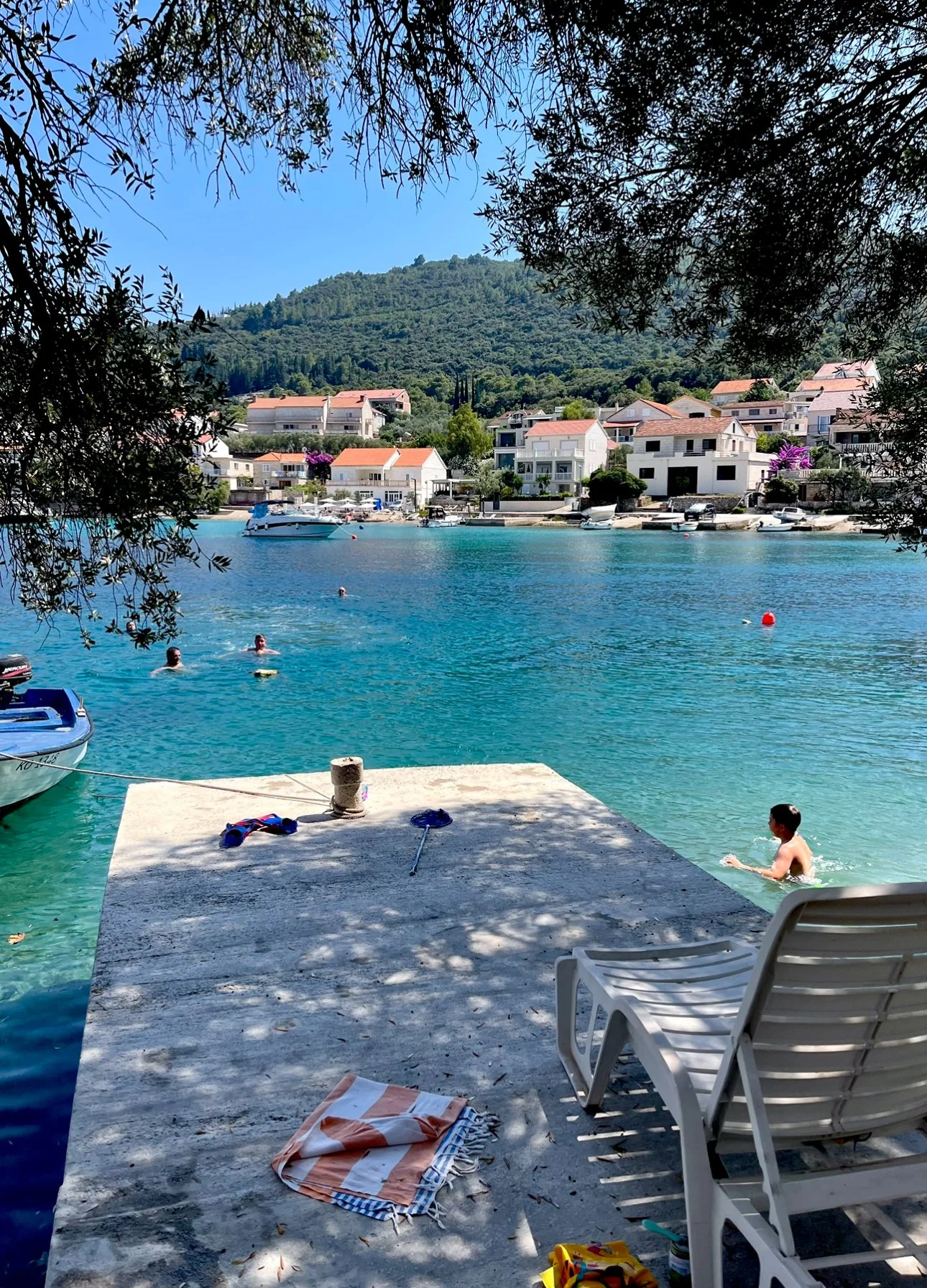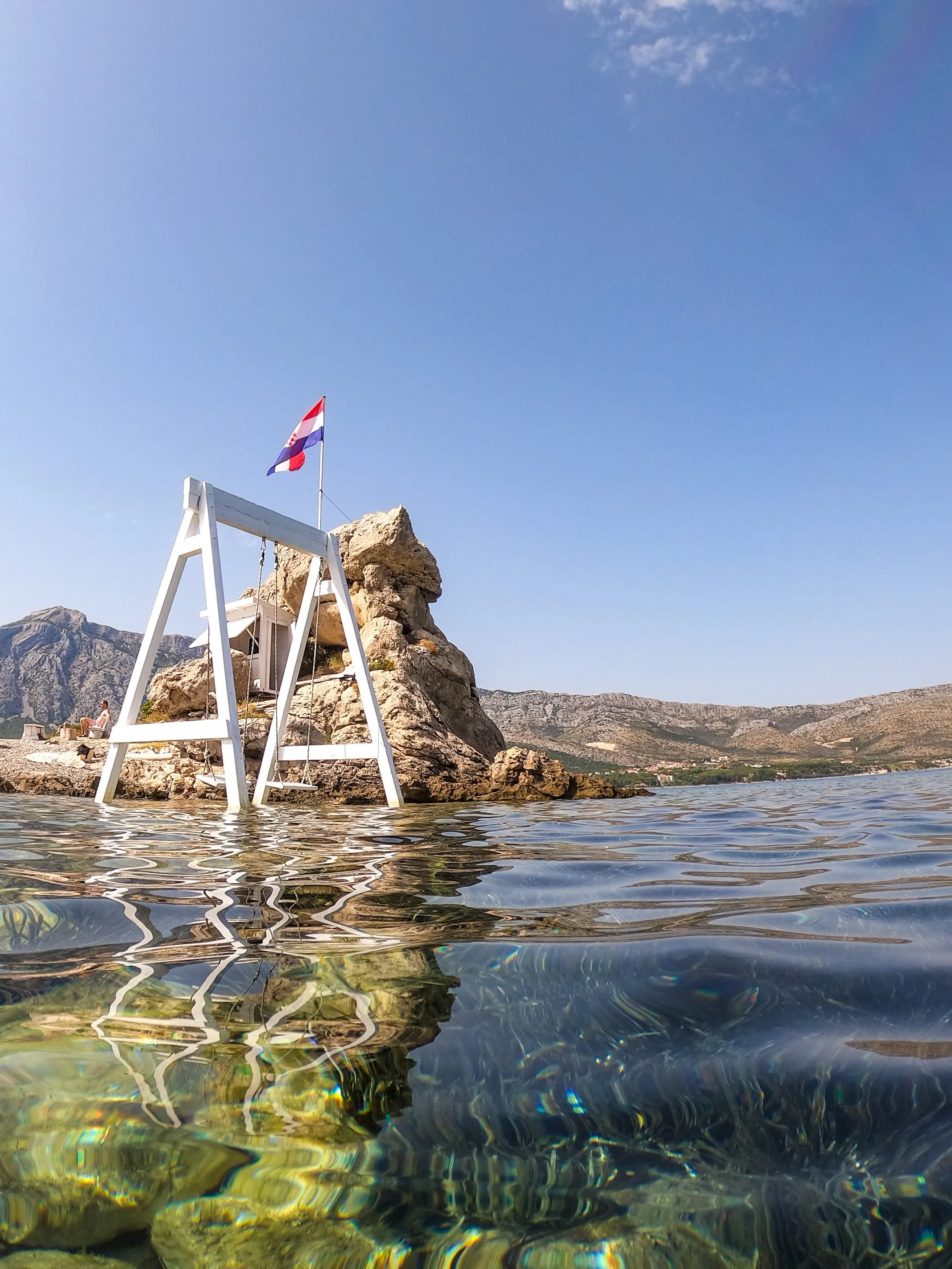Episode 126
Dobra večer, dragi prijatelji!
It’s summertime and Croatia’s peak tourist season!
For all of you summer travelers, this episode will be perfect for you!
Join us as we learn a bunch of important and challenging phrases.
Lesson
Traveling - Putovanje
What time does the bus arrive? - U koje vrijeme autobus dolazi?
What time does the ferry depart? - U koje vrijeme trajekt isplovljava?
At the restaurant - u Restoranu
Do you have a table for four? - Da li imate stol za četiri osobe?
Are these seats available? - Da li su ova mjesta slobodna?
Summer Problems! - Ljetni problemi
It’s very hot, how do I turn on the air conditioning? - Jako je vruće, kako da upalim klimu?
Do you have mosquito repellent? - Da li imate sprej protiv komaraca?
At the grocery store - u Dućanu
How much does it cost? - Koliko košta?
Where are the cookies? - Gdje su keksi?
Please help, my kids need ice cream! - Molim vas pomozite, moja dijeca trebaju sladoleda.
Super Slatko Report
Today we will learn about a famous Croatian, a Polymath, a bishop and engineer, and yes they are all the same dude, his name is Fausto Vernazio.
Fausto Veranzio, also known as Faust Vrančić, was born in 1551 in Šibenik, which was then part of the Venetian Republic. His wide-ranging intellect and curiosity led him to make significant contributions across various fields, including engineering, mechanics, linguistics, and literature. Veranzio's many achievements during the Renaissance period showcase this man’s true polymaths abilities.
If you forgot what a polymath is, it’s a person of wide-ranging knowledge or learning. The last Croatian Polymath we discussed was Ruder Bošković way back on episode 11.
Back to Fausto.
One of Veranzio's most notable accomplishments was his work in engineering, particularly his designs for various mechanical inventions. His most famous creation is the "Homo Volans" or "Flying Man," which was a parachute prototype depicted in his book "Machinae Novae" published in 1615. His design shows a man with a rigid wooden frame and a cloth stretched over it, which comes beforeLeonardo da Vinci's parachute concept and marking it one of the earliest known attempts at human flight. Wow!! Although there is no conclusive evidence that Veranzio tested his parachute himself, though there is some speculation, the detailed design remains a testament to his imagination, his innovation and his engineering skills.
In addition to his engineering prowess, Veranzio made significant contributions to the field of mechanics. His book "Machinae Novae" contains 49 large engravings showing a variety of machines and technical modernizations on existing machines, include: mills, bridges, and hydraulic devices. These illustrations were not just theoretical but included practical applications, demonstrating his deep understanding of mechanical principles and their potential to improve everyday life. The book served as an inspiration for later engineers and inventors, proving Veranzio's lasting impact on the field of mechanics.
Veranzio was also an accomplished linguist and lexicographer (meaning a person who compiles dictionaries). He authored one of the first dictionaries of the Croatian language, "Dictionarium quinque nobilissimarum Europae linguarum," which compared five of the most prominent European languages: Latin, Italian, German, Hungarian, and Croatian. This work was groundbreaking at the time in its systematic approach to comparing languages and provided an invaluable resource for scholars and translators. By compiling this dictionary, Veranzio contributed immensely to the study and preservation of the Croatian language and its integration into the broader European linguistic landscape.
Vernazio didn’t stop there, he also dabbled in the realms of literature and philosophy as well. Veranzio wrote extensively on a range of topics, including history, politics, and theology. His book "Logica Nova" offered insights into contemporary philosophical thought, blending traditional scholastic ideas with emerging Renaissance humanism.
In his later years, Veranzio served as a bishop, a role in which he continued to influence his community through his intellectual and spiritual leadership. His tenure as bishop was marked by his commitment to education and the dissemination of knowledge. Veranzio's broad educational initiatives aimed at improving literacy and learning among his parishioners, which was a cornerstone in his beliefs, the transformative power of knowledge. His dual legacy as a bishop and a scholar highlights the harmonious blend of faith and reason that embodied his life's work.
Fausto Veranzio's legacy is a testament to the enduring power of interdisciplinary scholarship. His contributions to engineering, mechanics, linguistics, literature, and philosophy reflect a mind that was constantly exploring and pushing the boundaries of human understanding and the world around us. Veranzio's work not only advanced knowledge in his time but also laid the groundwork for future innovations, earning him a place among the great polymaths of history.
Sounds like Fausto Vernazio was an amazing man making this Super Slatko extra sweet. Uncle Mike and family, appreciate you passing this one along, happy I was able to learn about him and share him with you.
And that’s if for the Super Slatko Report.






